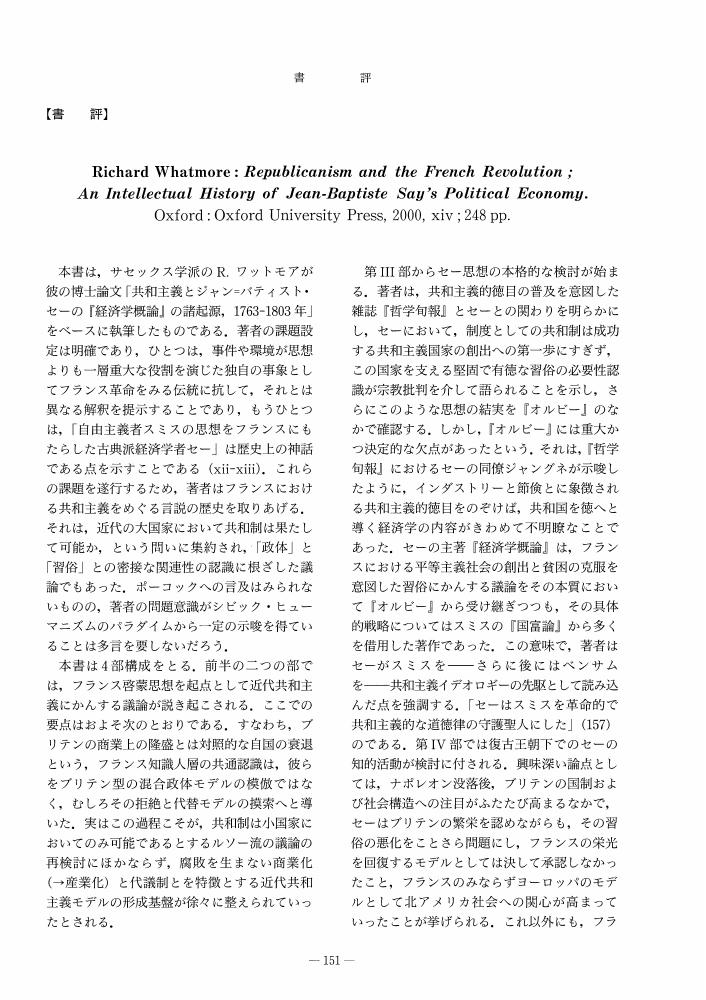- 著者
- 高橋 信勝
- 出版者
- The Japanese Society for the History of Economic Thought
- 雑誌
- 経済学史学会年報 (ISSN:04534786)
- 巻号頁・発行日
- vol.42, no.42, pp.151-152, 2002 (Released:2010-08-05)
1 0 0 0 OA J. -B. セーの経済学認識
- 著者
- 高橋 信勝
- 出版者
- The Japanese Society for the History of Economic Thought
- 雑誌
- 経済学史学会年報 (ISSN:04534786)
- 巻号頁・発行日
- vol.40, no.40, pp.56-68, 2001 (Released:2010-08-05)
- 参考文献数
- 33
This paper explains how J. -B. Say's recognition of political economy involves not only economic phenomena in the strict sense, but also the institutional factors which constitute market society, i. e., property and rational agents. According to Say, political economy was due to discover “nature des choses” by adapting the experimental method, and this perspective differs from Ricardo's counterpart, which contains abstruse deduction. Revealing the main contents of “nature des choses” about the socioeconomic sphere enables us to reinterpret the political economy in Say's design. The factors he considered are as follows: (1) the decisive importance of property and thus ownership, because the existence of a certain society depends on them; (2) “principe de l'utilité” as a criterion utilized by rational agents; (3) several laws regarding exchange that ultimately represent the production, distribution and consumption of social wealth, (4) “théorie des débouchés” which is useful to scale to what extent the above-mentioned factors are soundly united. Therefore, Say's recognition of political economy is more wide-ranged than commonly supposed. As long as political economy is grasped in his thinking on the basis of “nature des choses” about the socioeconomic sphere, Say could not help but be induced to analyze the conditions and automotive characteristics inherent in a market society. Proposing that political economy should be called social economy, Say expressed his profound intentions.
